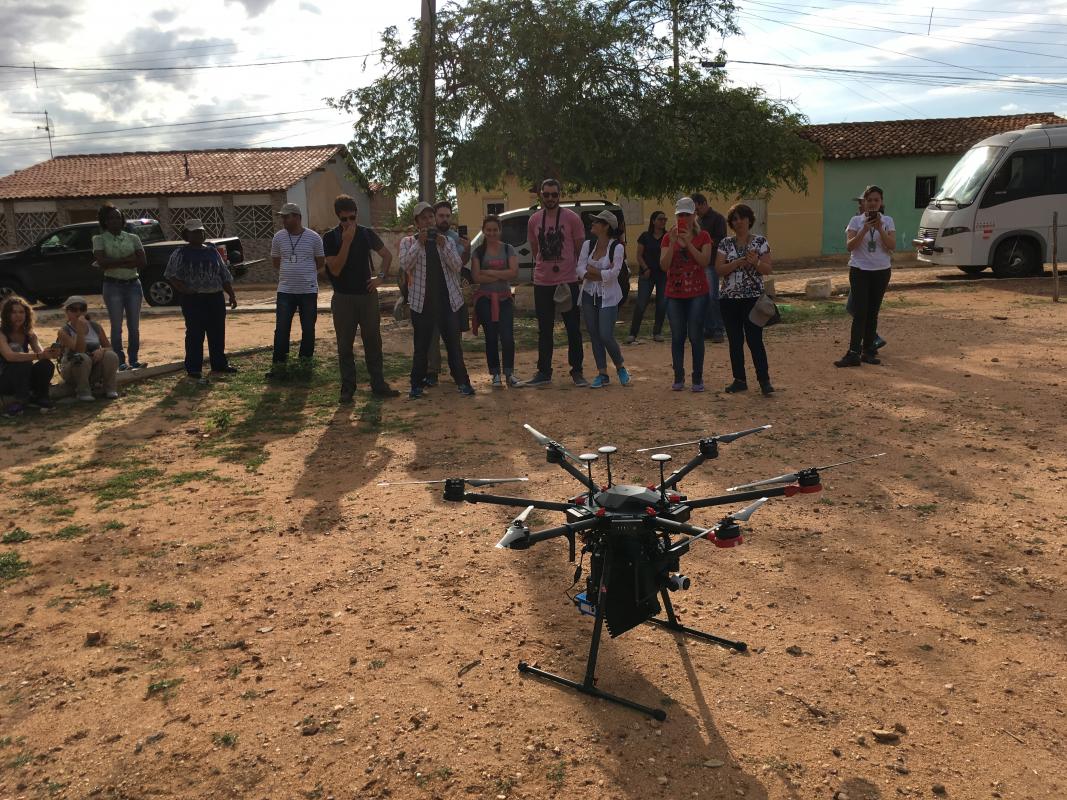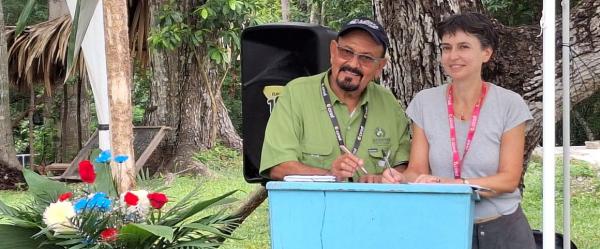Science at work 16 December 2025
- Home
- Press area
- Press releases
- sterile mosquito aerial releases drones
Releasing sterile mosquitoes using commercial drones

Mosquarel, for Mosquito Aerial Release, is a one-year project led by CIRAD that has just been awarded a Proof of Concept grant from the European Research Council (ERC). It set out to develop commercial drones to release sterile male mosquitoes from the air, in line with current regulations. The aim of such releases is to reduce mosquito population levels in certain zones biologically, to control the diseases they transmit, such as dengue, zika or chikungunya.
Until recently, there was no aerial solution for releasing mosquitoes, which were therefore released at ground level, using obsolete methods (open cages on the back of a vehicle, etc) that were also costly (20 times more expensive). Releasing sterile males using drones is therefore a substantial step forward, developed by the Revolinc project responsible for the proof of concept, which is based on a technology developed and patented for tsetse flies by Jérémy Bouyer, an entomologist with CIRAD. Through a collaboration with the FAO-IAEA Insect Pest Control Laboratory, the project fine-tuned the system and tested it in several countries, including Argentina, Brazil, Thailand and Singapore.
Based on this proof of concept, Mosquarel will serve to develop two commercial drone versions (with and without parachutes), which will be tested in Montpellier and Réunion (France), in collaboration with EID Méditerranée and IRD, and in Valencia, Spain. Both versions will satisfy European Commission regulations for C1 class drones, and are intended to be made commercially available.
Proof of concept obtained through the Revolinc project Proof of concept for the drone was obtained by the Revolinc (Revolutionizing Insect Control) project funded by the ERC Proof of Concept grant. Revolinc aims to develop environmentally friendly alternatives for biological control of invasions by three types of insect pests (tsetse flies, mosquitoes and fruit flies), two of which are beginning to invade Europe: mosquitoes and Mediterranean fruit flies. |



























